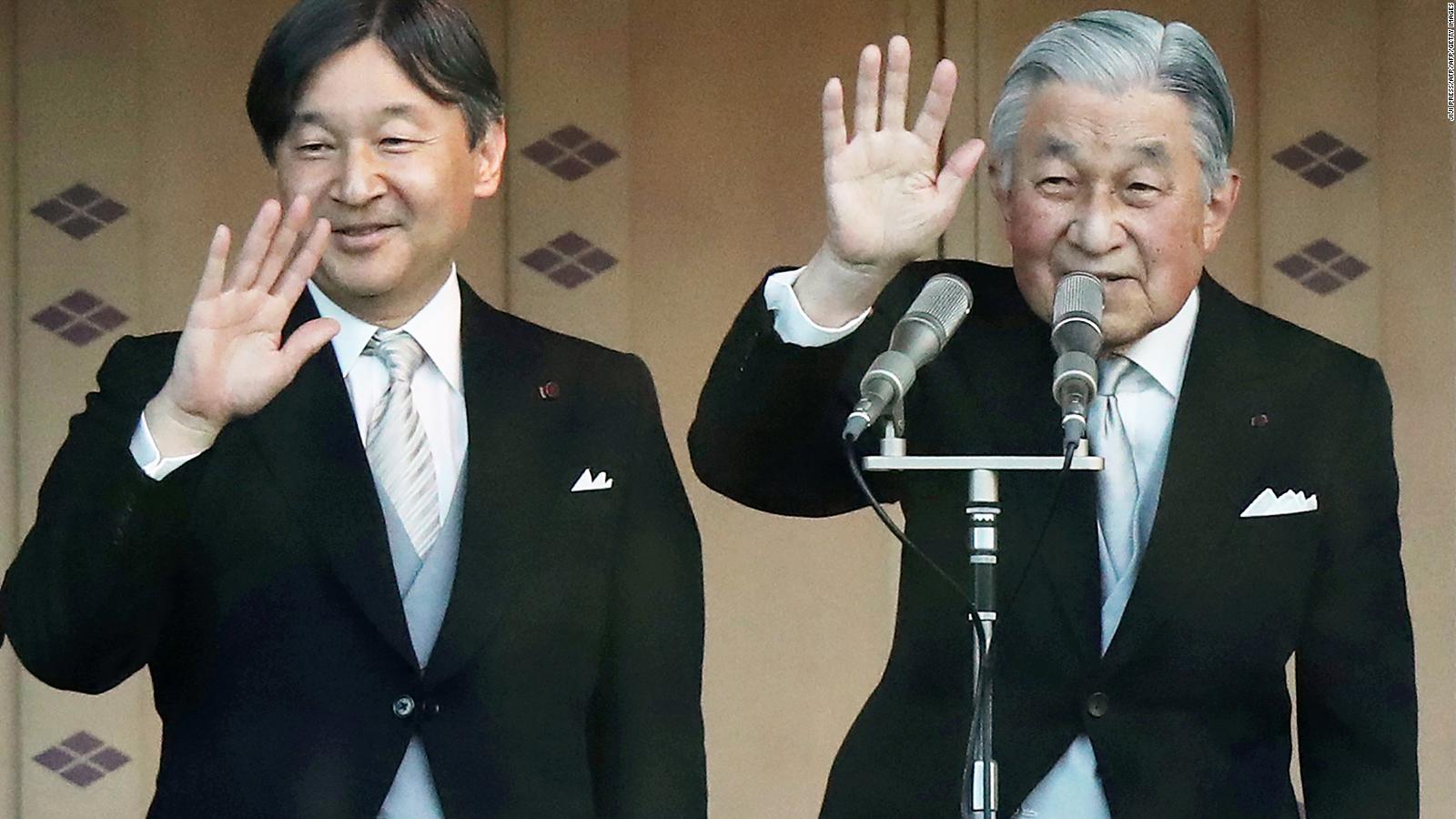The era, whose name includes the character for "harmony," will formally begin once the new Emperor is crowned on May 1.
Japan's Chief Cabinet Secretary Yoshihide Suga said he hoped the new name, which was adapted from an 8th century anthology of classic poetry, "will be widely accepted by the people and deeply rooted in life in Japan."
Japanese Prime Minister Shinzo Abe is expected to hold a press conference later Monday to explain the full meaning of the new name to the Japanese public.
The current Heisei Era began in 1989, when Akihito succeeded his father Emperor Hirohito, who ruled during the Showa period and is now known as the Showa Emperor. It will come to a close on April 30, the day Akihito abdicates.
Akihito, soon to be known as the Heisei Emperor, will become the first Japanese monarch in 200 years to step down, relinquishing the Chrysanthemum Throne to his son, Crown Prince Naruhito, who will become the 126th emperor.
Information about how the name of the era was decided and discussions around it have been closely guarded.
A week ago, Suga told reporters that the names of academics and other experts who are advising the government will not be made public, nor will the person or persons who proposed the chosen name be revealed.
Significant marker
Eras are about more than who is the emperor of the day. They are also, for example, the basis of the Japanese calendar system: 2018 was Heisei 30, coming three decades after the era began.
While the current system aligns with the rule of the emperors, this has not always been the case. In the past, new eras were declared to mark historical moments.
For example, the Ansei period, beginning on November 27, 1854, on the Gregorian calendar, was adopted following a number of natural disasters and a fire at the imperial palace. The name Ansei means "tranquil government" and was intended to herald a peaceful period.
Era names can also become political. The Showa era, the name of which can be interpreted to mean "period of radiant Japan," spanned the rise of Japanese fascism and nationalism, when imperial troops under the Rising Sun banner invaded numerous neighboring countries. This attitude is sometimes called Showa Nationalism.
Japanese Y2K
While the naming of a new era was a largely symbolic affair, a time for Japan to collectively turn a new page, the transition also presents a more immediate technical challenge.
Microsoft has warned that Japanese computer software, most of which was written in the Heisei era, could face a Y2K moment, because Japanese calendar years are described by a combination of the year and era name.
In the run up to the current millennium, concerns were raised that many computer programs represented four-digit years with only their last two digits. So, the years 2000 and 1900 would be indistinguishable.
Millions of dollars were spent safeguarding against the so-called Millennium Bug.
According to public broadcaster NHK, a survey last month found that about 20% of companies had not checked whether calendars in their software use the Japanese system.
"Industry ministry officials warn that insufficient preparations could lead to unrecognized dates and the possibility of data-processing errors," NHK reported.
Bagikan Berita Ini
















0 Response to "'Reiwa': Japan announces dawn of a new era"
Post a Comment